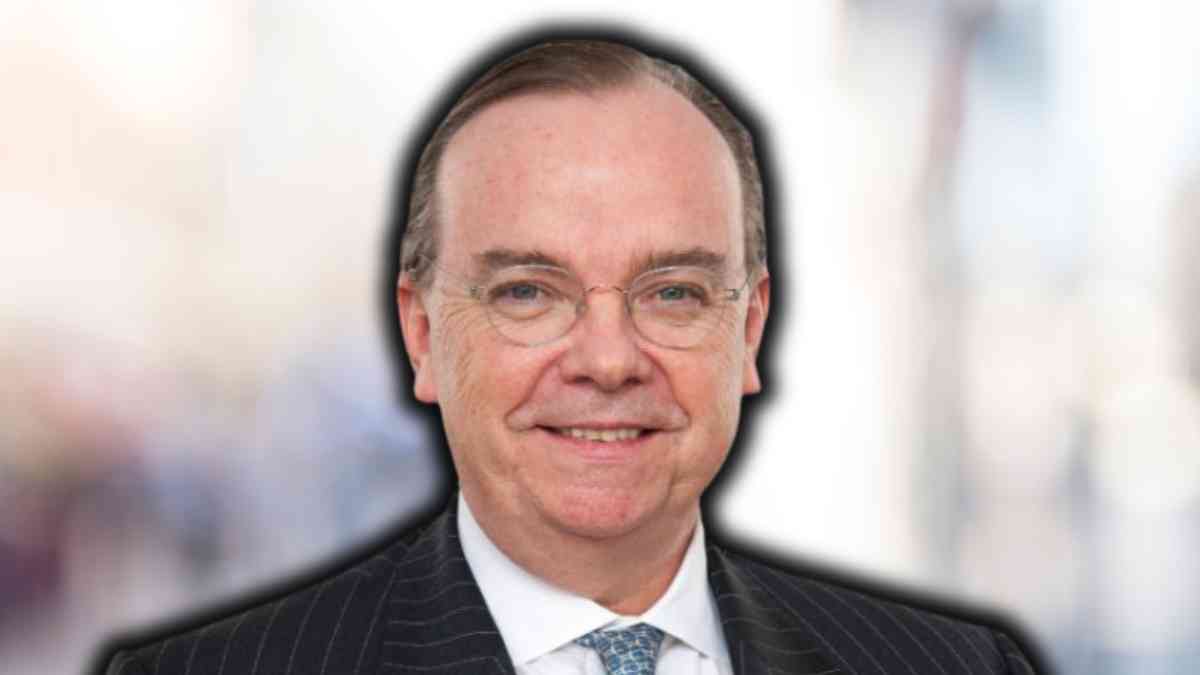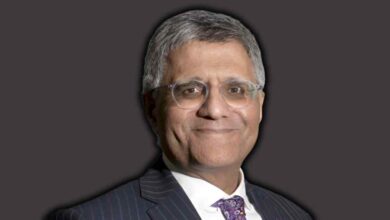Stuart Gulliver: The Strategic Visionary Who Transformed Global Banking

Stuart Gulliver is a name synonymous with strategic brilliance, unflinching leadership, and a deep understanding of global finance. As the former Chief Executive Officer of HSBC, Gulliver left a profound impact on one of the world’s largest financial institutions. His journey, from a young Oxford graduate to a central figure in international banking, is both compelling and instructive. This article explores the career, influence, controversies, and legacy of Stuart Gulliver with the depth and detail befitting one of the most formidable financial minds of his generation.
Early Life and Education
Born on 9 March 1959 in Derby, England, Stuart Thomson Gulliver’s early years were grounded in academic excellence and competitive sports. He attended Oxford University, where he studied Jurisprudence at Worcester College. Gulliver’s time at Oxford was also marked by his active participation in boxing—an activity that reflected his later reputation for being tough yet calculated in business circles. Despite qualifying as a barrister, he chose a radically different path by entering the financial world.
Joining HSBC and Rising Through the Ranks
Gulliver joined HSBC in 1980 as a trainee in the bank’s Asian operations. This move set the tone for a career rooted in international experience. Over the decades, he held numerous positions across HSBC’s global network, including in Tokyo, Hong Kong, Kuala Lumpur, and the Middle East.
His deep expertise in global markets led to his appointment as Head of HSBC’s Global Markets division. By 2003, he was named Group Treasurer and Head of Global Markets. A year later, he joined the Group Management Board, HSBC’s top decision-making body. In 2006, he became Chief Executive of Global Banking and Markets, as well as HSBC Global Asset Management. Under his stewardship, this division thrived, generating significant revenue and reinforcing HSBC’s presence in global financial hubs.
Becoming Group CEO of HSBC
In January 2011, Stuart Gulliver was appointed as Group Chief Executive Officer of HSBC Holdings plc, taking over during a period of considerable challenge and transformation. The aftermath of the global financial crisis had reshaped the financial landscape, and Gulliver inherited a bank facing intense regulatory scrutiny and reputational concerns.
Gulliver responded with a bold vision. He led a major restructuring programme aimed at refocusing the bank’s operations on profitable regions—especially Asia, where HSBC had historical roots and strong market penetration. Over the span of his leadership, he cut HSBC’s global footprint from 87 countries to 66 and divested more than 100 businesses that did not align with HSBC’s long-term strategy.
Strategic Shifts and Global Vision
Under Gulliver’s leadership, HSBC underwent what many termed a strategic reinvention. He recognised that the future of global banking lay in Asia, particularly China and the surrounding regions. He steered the bank back to its traditional strengths in trade finance, wealth management, and retail banking in growth markets.
His decisions were not without controversy. Thousands of jobs were eliminated, assets were shed, and the bank’s London operations were streamlined. Yet, many within the financial sector applauded the clarity of his vision. Gulliver was not interested in running a bank that chased growth in every corner of the globe—he wanted a lean, focused institution that could deliver consistent value.
Navigating Controversy and Crisis
Despite his accomplishments, Stuart Gulliver’s time at the helm was not free from controversy. In 2015, he became embroiled in a media storm when it was revealed that he held a Swiss bank account via a Panamanian entity. While the arrangement was legal and fully declared to tax authorities, it drew significant criticism in the context of HSBC’s wider issues with its Swiss private banking division.
Gulliver defended his financial arrangements by pointing out that he was a non-domiciled UK resident for tax purposes and that he used the offshore structure to maintain privacy. Nevertheless, the situation added fuel to the fire during a period when HSBC faced widespread scrutiny over money laundering, tax evasion facilitation, and compliance failures.
To his credit, Gulliver did not shy away from the issues. He appeared before parliamentary committees and addressed public criticism directly. He also spearheaded efforts to overhaul HSBC’s compliance and regulatory frameworks, investing heavily in anti-money laundering systems and internal controls.
Leadership Style and Influence
Stuart Gulliver was often described as meticulous, analytical, and deeply committed to the bank’s long-term future. He was not known for flamboyant speeches or grandstanding; instead, he led through results and strategic discipline. Colleagues and competitors alike noted his ability to navigate complex global issues with precision.
His leadership was particularly evident in how he handled geopolitical risk. Whether it was managing exposure in emerging markets or adapting to shifting regulatory regimes, Gulliver showed a deep understanding of risk and a steady hand during uncertain times.
Moreover, he was instrumental in promoting HSBC’s digital transformation. He championed investments in fintech, mobile banking, and cybersecurity, laying the foundation for HSBC’s ongoing evolution in a digitally-driven world.
Retirement and Life After HSBC
Stuart Gulliver stepped down from his role as CEO in February 2018, succeeded by John Flint. His departure marked the end of a 38-year career at HSBC. Yet, retirement did not mean a retreat from public or corporate life.
He went on to serve on several high-profile boards, including Jardine Matheson, The Saudi British Bank, and the Hong Kong Airport Authority. He was also appointed to the International Advisory Board of MillTechFX, a fintech company focused on transparent foreign exchange execution.
Beyond business, Gulliver dedicated time to philanthropic endeavours. Notably, he became Chair of Maggie’s Centres, a UK-based cancer charity providing free support to people with cancer and their families. His involvement in charitable work further highlighted the multifaceted nature of his leadership—combining business acumen with a sense of social responsibility.
Legacy and Long-Term Impact
Stuart Gulliver’s legacy in the financial world is significant. He did not merely manage HSBC; he reshaped it for a post-crisis world. His strategic realignment towards Asia, deep cuts to bloated operations, and robust compliance initiatives have had a lasting impact.
While critics point to the controversies of his tenure, supporters argue that he did what was necessary to restore HSBC’s reputation and profitability. Few CEOs can claim to have led through such a tumultuous period and emerged with the institution stronger and more focused.
Importantly, Gulliver’s tenure serves as a case study in leadership during crisis. It illustrates the challenges of balancing regulatory expectations, public trust, and shareholder returns in a globalised economy. It also shows the importance of vision—of knowing when to exit markets, where to focus, and how to build resilience into an organisation.
Conclusion
Stuart Gulliver’s story is one of discipline, strategic thinking, and unwavering focus on long-term goals. From his early days as a young Oxford graduate to his transformative leadership of one of the world’s biggest banks, he exemplifies what it means to navigate complexity with confidence.
His ability to make tough decisions, defend them in the public eye, and drive meaningful change will continue to be studied in boardrooms and business schools alike. Whether praised or criticised, Stuart Gulliver remains a towering figure in global finance—one whose career continues to influence the direction of international banking to this day.



